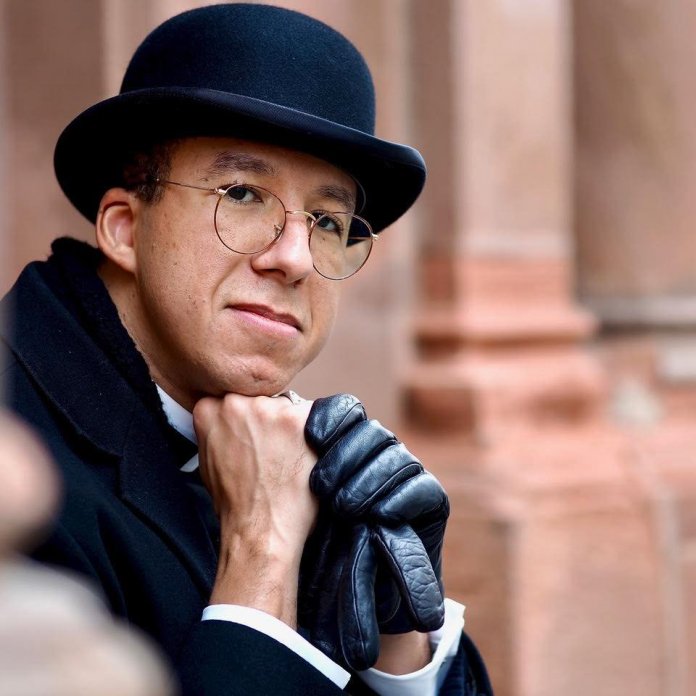Polemical British cleric Calvin Robinson unsurprisingly sparked a fracas when addressing the “Mere Anglicanism” conference in Charleston, South Carolina earlier this year. Most attention focused on his rejection of women’s ordination.
But his rejection of Martin Luther and the Reformation as preamble to Marxism was more interesting.
Robinson is ordained in the Nordic (Old) Catholic Church founded in 1999 from the Church of Norway (Lutheran). Sharing the perspective of some Roman Catholics and Anglo Catholics, he denounced Luther for “removing the authority of the Church Universal, magisterium, papacy,” which made “Marx’s job of crushing Christianity all the more easier.”
“Priestly authority was damaged in the Reformation,” Robinson recalled. “Every layman became a priest, each with their own personal interpretation.” Centuries later, Marx exploited this absence of priestly authority “in favour of the mass relatively ill-informed laity of the time.” And Marx exploited Luther’s “liberal perspective of freedom,” which was the “ability of the individual to do as they wish.”
According to Robinson, “Luther liberated people from the body of Christ – His Church – and enchained our hearts by putting all the pressure upon our individual consciences, upon our subjective opinions. He made slaves of us and dressed it up as freedom.” Protestantism gifted Marx the “foundation for him to build from.”
“The Reformation made the individual the authority,” Robinson said, “And Marx planned to finish the job by turning those pieces of the Church into godless men.” The result: “Freedom from God. Slavery to sin.”
Robinson warned: “Let this be a reminder to us all that liberalism is a sin. The individual is not at the centre, Christ is. Liberalism is in fact idolatry of man, of the individual, of ourselves, disguised as freedom.”
For Anglicans, Robinson noted, the Reformation was about church reform and refocusing on the Scriptures. “I would say, for the most part, it failed in those matters,” he noted. “The Church doubled down, and in the end the Reformation [resulted] in division, schism, splits and further hostility. I cannot believe our Lord would see that as a good thing. We, the Church Militant, are causing him pain. If the Church is Christ’s body, we are fracturing him.”
Robinson concluded: “Between them, Luther and Marx destroyed the Christian soul of Germany, which, as we know, has gone on to become the home of heresy.”
That’s one perspective. Here’s another: one billion Protestants in today’s world descend from Luther, however indirectly. The Reformation proliferated the Gospel. It also refocused Christians of all branches on the Scriptures and the centrality of salvation by faith.
Robinson disdains “liberalism,” meaning the individual’s right to believe and make choices without coercion. This “liberalism” is baked into the Bible. God creates individuals before He makes tribes and nations. Unlike those groups, the individual lives forever and directly has God’s image. God invites individuals to follow Him. This divine invite cannot be obstructed without violating God’s will.
Robinson, who’s ordained in a church descending from Norwegian Lutheranism, is himself a product of the Reformation. He lives in Great Britain, which was profoundly shaped by the Reformation. Britain, and its child, the United States, also a Reformation product, both thanks to their Protestant heritage, have a Bill of Rights, protecting the individual’s freedoms. Among those freedoms is religious liberty.
Of course, Robinson’s speech in Charleston, South Carolina, would have been impossible without such liberty. His media career, so filled with controversy, depends on freedom of speech, premised on individual rights, largely descending from the Reformation. Robinson’s ideas are highly unpopular ideas today, but he is legally and culturally protected, thanks to understandings about the individual mostly dating to the Reformation. Before the Reformation, Robinson could not have survived, much less made a living as a provocateur. He would have been silenced, jailed, tortured, and/or killed.
Robinson’s career is wonderfully the product of “liberalism” and individual rights. He is free to speak as he pleases. Thankfully, there is no global superintending authority that can silence him. He predictably sparked controversy at “Mere Anglicanism,” delivering remarks his hosts did not expect or want. Yet he was paid his honoraria, and his travel costs, and he reaped the online rewards of notoriety. Doubtless more speaking invitations will follow him. God bless America.
And more power to Robinson, who is the living embodiment of the freedoms, glories, and success of “liberalism,” which he rightly credits to the Reformation. Whatever Luther’s intent, his defiance of the Roman Catholic Church and its allied civil powers unloosed forces that allow controversialists like Robinson, from their perch in Reformation-shaped societies, to reach the whole world and thrive. The world is richer for having gadflies like Robinson who can speak freely.
Far more than Marx and his followers, who despise freedom of speech and religion, Christians globally have immensely benefitted from the rights of conscience that the Reformation ultimately birthed. Maybe in his next speech, Robinson can thank Luther.



